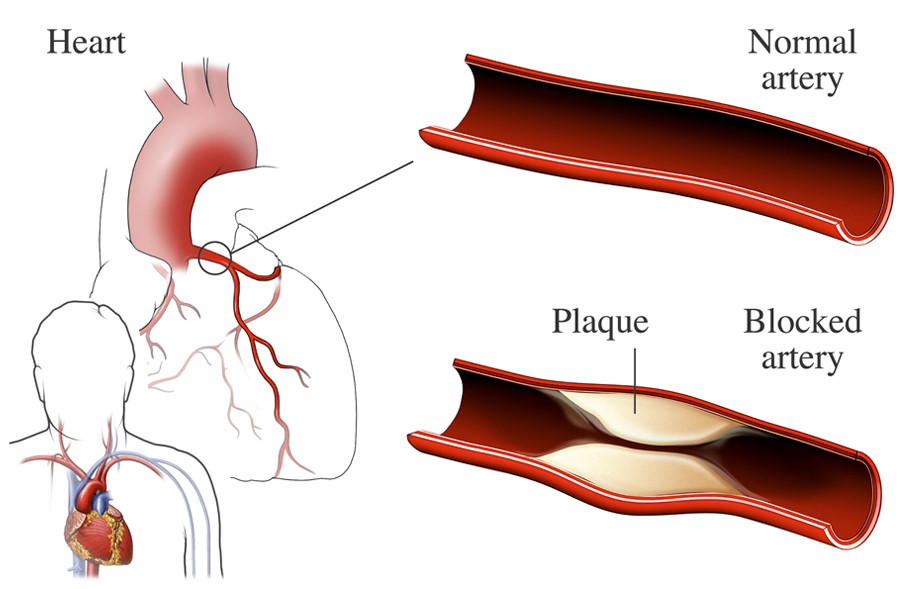Coronary artery disease (CAD) develops when the coronary arteries, which supply oxygen-rich blood to the heart muscle, become narrowed or blocked by a buildup of plaque—a combination of cholesterol, fat, calcium, and other substances. Several risk factors increase the likelihood of developing CAD. Here are the most common ones:
- Age: Risk of CAD increases with age, particularly for men over 45 and women over 55.
- Gender: Men tend to develop CAD earlier in life than women, although after menopause, women’s risk approaches that of men.
- Family history: Having a close relative, such as a parent or sibling, with CAD increases the risk.
- High blood pressure (hypertension): Elevated blood pressure forces the heart to work harder, increasing the risk of CAD.
- High cholesterol levels (hypercholesterolemia): High levels of LDL (“bad”) cholesterol and low levels of HDL (“good”) cholesterol can lead to plaque buildup in the arteries.
- Smoking: Tobacco smoke damages the blood vessels, accelerates plaque buildup, and lowers HDL cholesterol.
- Obesity and overweight: Excess weight, particularly abdominal fat, increases the risk of CAD.
- Diabetes mellitus: Diabetes is associated with insulin resistance, high blood sugar levels, and an increased risk of CAD.
- Physical inactivity: Lack of regular physical activity contributes to obesity, high blood pressure, and other risk factors for CAD.
- Unhealthy diet: Diets high in saturated fats, trans fats, cholesterol, sodium, and refined carbohydrates can increase the risk of CAD.
- Stress: Chronic stress may contribute to CAD risk through mechanisms such as increased blood pressure and unhealthy coping behaviors.
- Sleep apnea: Sleep apnea is associated with hypertension, obesity, and other CAD risk factors.
- Excessive alcohol consumption: Heavy drinking can raise blood pressure, contribute to obesity, and increase triglyceride levels, all of which are risk factors for CAD.
- Chronic kidney disease: Impaired kidney function is associated with an increased risk of CAD.
- Autoimmune conditions: Certain autoimmune diseases, such as rheumatoid arthritis and lupus, are associated with an increased risk of CAD.
Managing and controlling these risk factors through lifestyle changes (such as adopting a heart-healthy diet, regular exercise, smoking cessation, and stress management) and, if necessary, medications (such as statins, blood pressure medications, and antiplatelet agents) can help prevent or delay the development of CAD. Regular medical check-ups and screenings can also help identify and manage risk factors early.
Link: https://www.nhlbi.nih.gov/health/coronary-heart-disease/causes




